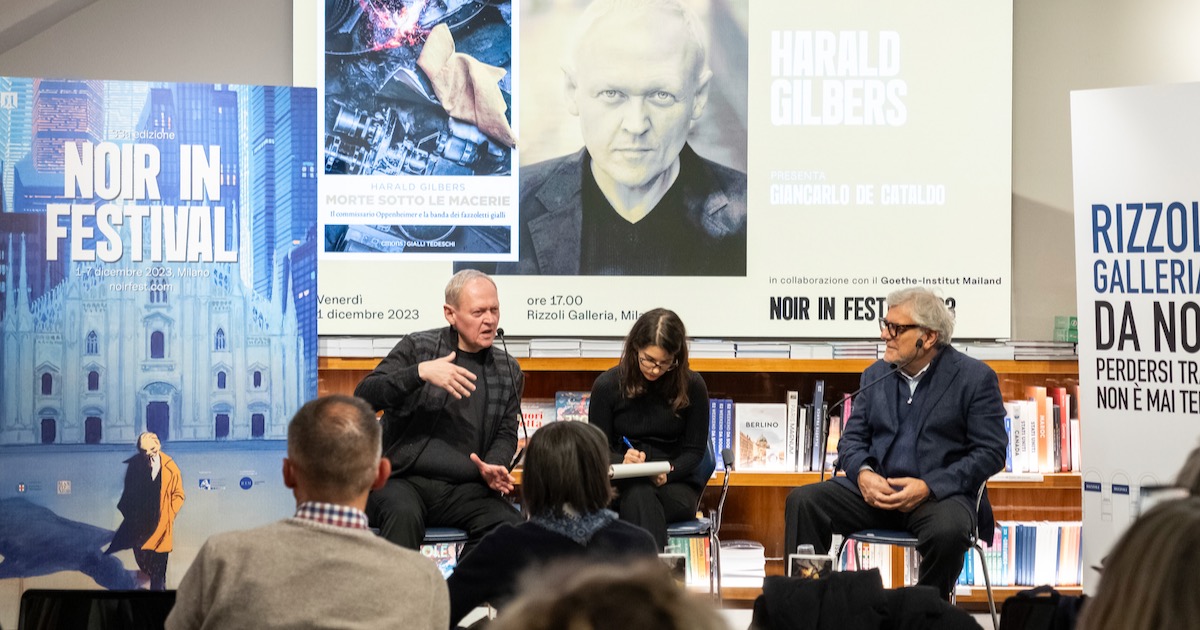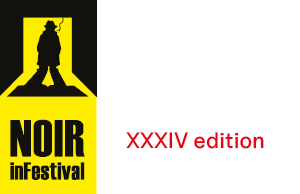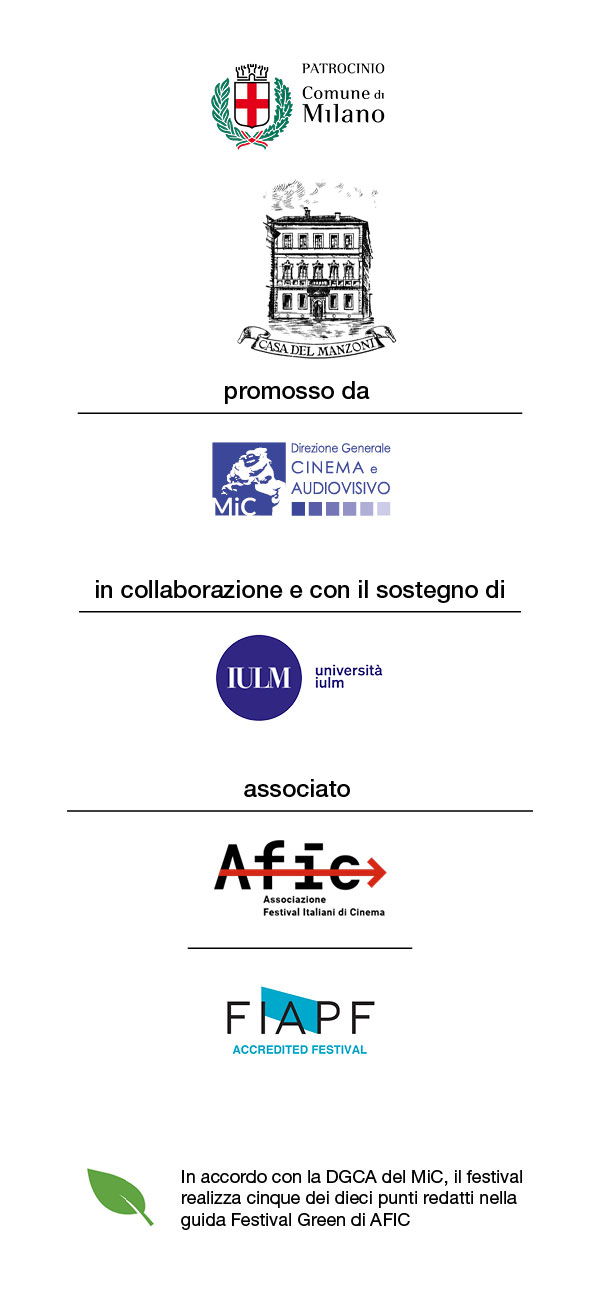Harald Gilbers, in a talk with Gianfranco De Cataldo, presents his new novel Trümmertote. Article by Cristina Diaferia

The role of the writer is not without its own pitfalls, something that the two authors onstage at the Rizzoli bookshop know very well. In a stimulating exchange of ideas, Giancarlo De Cataldo (who also handed the Raymond Chandler Award to Daniel Pennac yesterday) and Harald Gilbers pondered the question of the contemporary writer’s responsibility to history and the historical record.
“I feel like an archaeologist who goes looking for what to write about,” the German author put it as he presented his new novel Trümmertote. As always, the book grew out of Gilbers’ need to probe history and prompt his readers to ask questions about the past. “As an author, I have to depict a historical period. Not that I have all the answers, of course, but I can ask a couple of interesting questions,” Gilbers explained, musing over the writer’s privilege: instilling doubt and encouraging a search for truth.
Another theme running through the conversation was the issue of violence. For this writer born in Munich, it is essential to consider closely the consequences of violence; hence the trauma experienced by soldiers in a war looms large in the series devoted to Inspector Oppenheimer.
The representation of evil, however, requires great care on the part of the writer to avoid either legitimizing it or else exasperating it. In this regard, Gilbers also commented on the importance of the role played by the media today; many of the choices made by his characters, he said, are influenced by the film noir titles produced in Hollywood. It’s a relationship between novels and the big screen that reflects the particular focus of Noir in Festival itself.
To conclude, Gilbers, who referred to himself as “an open book” before the audience, also announced that a TV series based on his novels is in the works; moreover, he intends to stretch the story of Inspector Oppenheimer to cover at least three more books.


